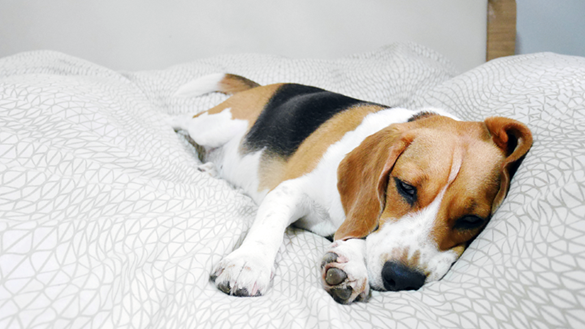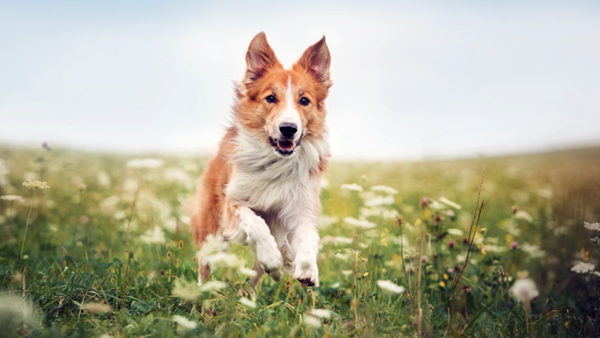Haemorrhagic Gastroenteritis (HGE)
Haemorrhagic gastroenteritis can affect dogs without warning and be fatal if left untreated. Find out what you should look for and when to contact your vet.

What is HGE?
Haemorrhagic gastroenteritis (HGE), or acute haemorrhagic diarrhoea syndrome (AHDS), is an inflammation of the digestive system that can affect healthy dogs without warning. While similar to standard gastroenteritis issues, HGE is characterised by its sudden onset (with signs occurring within a few hours) and bloody, bright red diarrhoea.
The potentially fatal condition can progress quickly in small dogs (particularly Yorkshire terriers, miniature schnauzers and Maltese), although breeds of all ages can be affected. If left untreated, the condition can progress to low blood sugar levels, severe dehydration and even sepsis.
What causes HGE?
The exact cause of HGE remains unknown, but suggestions include allergic reactions, parasites, toxins and bacterial infections. It could also be linked to eating raw meat and poultry.
This lack of a specific cause makes the condition largely unpreventable and, unfortunately, once your dog has had HGE they’re more likely to get it again. Vets recommend you feed your dog a high-quality, cooked diet, avoid food or treats they aren’t used to, and use regular parasite protection, including flea and worm treatment.
Symptoms of HGE
Symptoms of HGE include:
- Sudden onset of bloody diarrhoea
- Vomiting
- Lack of appetite
- Stomach pain
- Tiredness
- Dehydration
- Fever
- Collapse
HGE progresses very quickly, meaning your dog could be perfectly fine one day and extremely unwell the next. If you spot any of the above signs, contact your vet straight away for immediate treatment.
Treating HGE in dogs
Dogs with HGE usually make a full recovery within a few days of having treatment. If your dog has HGE, they will probably need to stay at the vet for several days where they’ll be given essential fluids and anti-sickness medication to support their recovery. They may not be given food for the first 24 hours until their condition has improved; after which, they’ll receive small, easily digestible meals throughout the day.
For more information about haemorrhagic gastroenteritis in dogs, speak to your Medivet practice

Our Pet Care Advice
At Medivet, we’re committed to providing trustworthy, expert advice that helps you care for your pet. Don't miss our latest advice for keeping your pets happy and healthy.
Search advice

Medivet Healthcare Plan
On average our clients save an average of £225 with the Medivet Healthcare Plan.
Learn more

